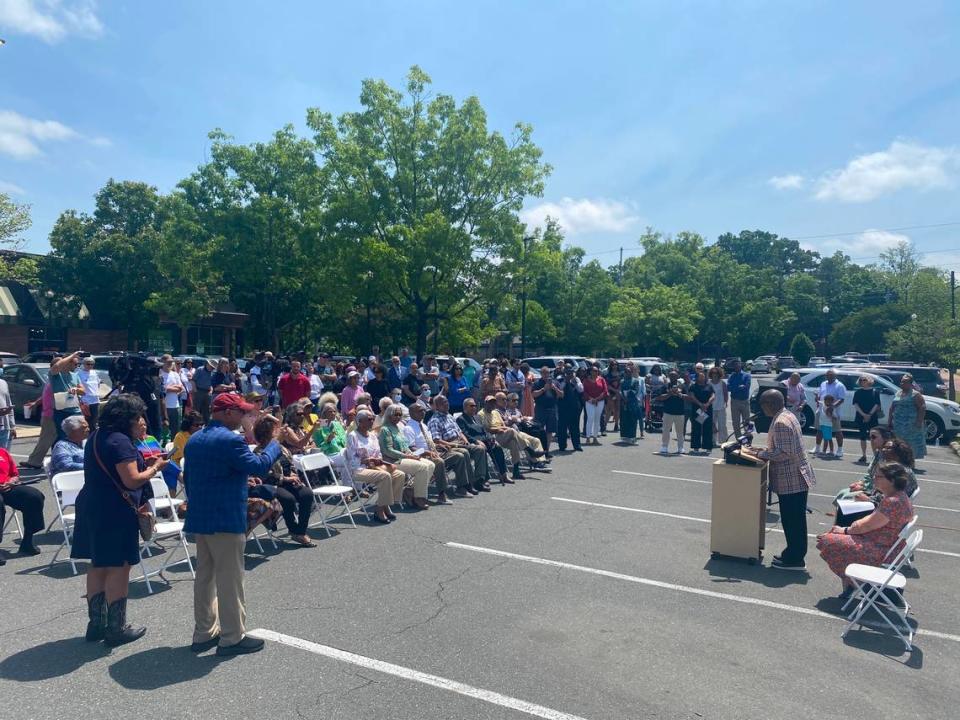New civil rights marker honors 1960 Shaw and St. Augustine’s student protest
Recognition, Swanola Debnam says, feels good after 63 years.
On February 12, 1960, she was one of 41 Black college students arrested for trespassing near a segregated Woolworth’s department store in Raleigh’s Cameron Village, now known as the Village District. On Saturday afternoon, North Carolina commemorated their act of protest with a roadside marker, adding another post to state’s growing Civil Rights Trail.
“I wasn’t used to stuff like that,” Debnam, now in her mid-80s, said of the protest. “But I was proud of what I did.”
The protesters were students at Shaw University and St. Augustine’s University, two historically Black colleges in Raleigh. They were inspired to act less than two weeks after four North Carolina A&T students famously conducted a sit-in at a Woolworth’s lunch counter in Greensboro.
The 41 Raleigh students were initially found guilty in court before an appellate court dismissed their cases.
Their protest and subsequent legal battle inspired the creation of the Student Nonviolent Coordinating Committee (SNCC) at Shaw University in the spring of 1960. SNCC would go on to lead sit-ins and other nonviolent actions across the South during the civil rights movement.
Seven of the 41 Shaw and St. Augustine’s students were in attendance for the marker unveiling Saturday.
“This is sacred ground, where students were willing to risk their freedom in order to see equality promoted,” Rev. David Forbes told the crowd of around 150 people who gathered for the event. “I’m happy and proud to be among those who were here.”
Forbes, a cofounder of SNCC, was arrested that day. At the time, he was a 19-year-old student at Shaw.

Set on a white background and outlined in retro pink, the new historical marker reads: “Protests against segregated lunch counters, here, Feb. 1960, led to 41 arrests. Later acquittals marked noted civil rights victory.”
The neighborhood group Friends of Oberlin Village applied to have the Woolworth’s protest added to the North Carolina Civil Rights Trail. Launched in 2020, the trail now has more than 20 markers, from the western mountains to Ocean City Beach on the coast.
By the end of the year, the North Carolina African American Heritage Commission hopes to have 50 markers up statewide.
“Understanding our history of how Black people in our state have been able to achieve progress has been on the shoulders of these various fights,” said commission Chair Valerie Johnson.
This is actually the second Civil Rights Trail marker in the area. In the fall, the state erected a plaque at the home site of Joseph and Elwyna Holt, parents who led an effort to desegregate Raleigh schools in the 1950s.

